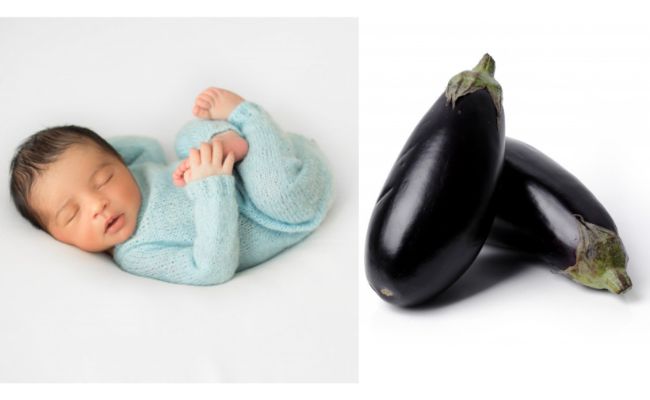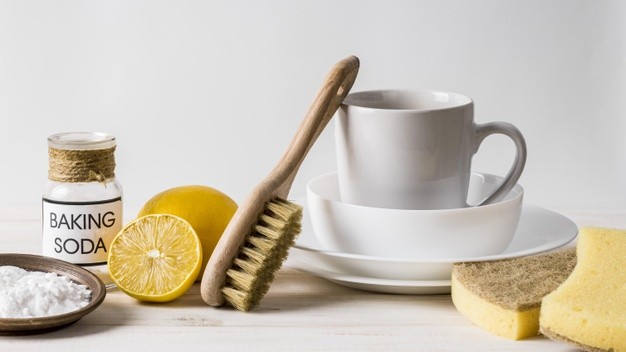Reasons people go vegan. Going vegan is a great opportunity to learn more about nutrition and cooking, and improve your diet. Getting your nutrients from plant foods allows more room in your diet for health-promoting options. Examples are whole grains, fruit, nuts, seeds, and vegetables, which are full of beneficial fiber, vitamins, and minerals. There are numerous paths that can lead a person to veganism. It largely depends on their life experiences, interests, outlook on the world, and the timing of when certain issues are brought to their attention. You can ask 10 different vegans and although you may find similarities in their stories, going vegan is a very personal decision. Therefore all attempts to make sweeping generalizations are destined to fail. Everyone (non-vegans included) thinks that they know why people go vegan and what vegans are supposed to be like. Furthermore, there’s no shortage of stereotypes about vegans. But the truth is, we’re a diverse bunch and we all have our own reasons why we decide to take the step to change our lifestyle. No matter how challenging it may have seemed at the time. Here are 5 common reasons people go vegan: 1. Health and Nutrition Many people who turn vegan are first drawn to it because they hear or read about the tremendous long-term health benefits of eliminating artery-clogging and disease-accelerating animal products from their lives. Some specifically turn to a plant-based diet to improve their health and well-being. Then they eventually adopt the vegan lifestyle because of the numerous negative impacts of animal agriculture on animals and the planet. In recent years, the health argument for veganism has gained tremendous traction. As several scientific studies have confirmed what vegans have been saying for years – you don’t need to consume animal products to live a healthy life; in fact, consuming a diet of plant-based whole foods is undoubtedly the healthier choice. 2. Environmental Protection If you haven’t noticed the mainstream rise of the green movement in recent years, you must be living under a rock! As the impacts of accelerating climate change have become more widely known, the need for us to take steps to curb the destruction of our precious planet has become abundantly clear. Industrialized animal farming is a huge factor that is contributing to environmental degradation and the facts are so compelling that anyone seeking to live a more sustainable or eco-friendly lifestyle cannot help but question the impact of their food choices on the environment. Similar to those drawn in by the health argument for veganism, once people learn about industrialized animal farming and the horrific treatment of animals in factory farms, embracing the animal-free lifestyle beyond their plate becomes a logical next step. Long before the highlight of the health and environmental benefits of the argument in support of adopting a vegan lifestyle, people go vegan solely for moral reasons. Anyone who admires or adores animals has probably (at some point in their lives) questioned whether there is any difference between the animals they care for and protect and those that we breed and kill for food. Some of us find a way to justify this clear disconnect, citing physiological, historical, cultural, and other reasons why we eat and use animals. While others realize that these amount to nothing but excuses and that the only sensible first step that anyone who loves animals can take is to not eat them. This easily transitions into the broader realization that no form of animal use is morally justifiable and that we shouldn’t be wearing them or using them when animal-free alternatives exist. 4. Social Justice Anyone who is opposed to injustice in the world, should pause and think about the fact that we breed and kill billions of animals on an annual basis, just so that we can eat them. People who passionately believe that the world would be a much better place if we all learned to look past our differences and embrace the common ties that bind us will eventually have to confront the injustice we inflict on animals for our pleasure, convenience, and entertainment. If you oppose racism, sexism, and other forms of discrimination based on class, sexual orientation, physical appearance, or abilities, then veganism is a natural extension of the belief in equality. This doesn’t mean that humans and animals are the same in every way and animals need to enjoy the same rights as human beings. What this means is recognizing that animals do not exist solely for us to use them as a means to an end. 5. Logic We don’t mean to imply that all the other paths to veganism are not logical ones. However, many people turn to veganism because of a combination of all the above factors. They turn to this lifestyle choice as the most meaningful step one can take against institutionalized systems of exploitation of living beings, to do something positive for their health, and the environment and to live in a manner that reflects their ethics. Veganism is a logical choice because it is good for us, animals, and for the planet. If you respect life, you should not directly or indirectly participate in the exploitation of life; if you respect nature, you cannot support industries that contribute to the destruction of our natural world, and lastly, if you value your own existence, you wouldn’t want to consume products that can have a detrimental impact on your health. It’s that simple, and you don’t need elaborate theories, complicated moral reasoning, and a billion scientific facts to help you arrive at veganism as the solution. Ultimately, the path you choose to get to veganism does not matter; what truly matters is you begin the journey and stay the course! https://www.onegreenplanet.org/
Water is a precious resource— with about 70 percent of the Earth's surface is water only less than 1 percent is available for human use. Today, water is one of our most precious natural resources. Freshwater exists on Earth's surface in lakes, rivers, and ice, as well as below the surface as groundwater. However, it is a limited resource; freshwater makes up only about three percent of all water on Earth. ... When the demand for freshwater cannot be met, it can lead to political tension and public-health problems. Every drop of water must be saved and passed on to the next generation and it is also imperative on the part of the present generation to avoid contamination of water to protect people from diseases. Clean fresh water is a luxury in many parts of the world. But these freshwater systems are now among the most endangered habitats in the world, due to human development, pollution, and climate change. Fewer than 70 of the world's 177 longest rivers remain free of man-made obstructions. The Precious Resource Water is the second most important element after air which is needed for all living beings to survive on earth. All the major civilizations around the world have evolved near the river. Water is needed for the agriculture sector and used as a coolant in various industries and manufacturing plants. Water maintains the ecological balance on earth. Without water, people face many disasters like drought, environmental pollution, and global warming which can lead to the extinction of life on planet earth. Remember that water is precious for every living being hence we all should act sensibly for the conservation of water. Besides, we know how to save water - turn off the tap when brushing our teeth, shower rather than a bath, fix any dripping taps, put a full bottle in the toilet tank to reduce the fill-up measure, wash your car sparingly..... but how can we COLLECT water naturally instead of it going to waste? Start with rain water! We just had record floods in Mauritius, and yet in the months to come it should be a dry Winter. It seems obvious to invest in a rainwater tank, right? A rainwater tank collects and stores rainwater, typically from rooftops via rain gutters. It is an economical way to ensure access to water all year round while lowering CWA bills for individual households or for irrigation purposes. At the same time, rainwater collection means there is less pressure on the public water system. It is an environmentally sound and responsible practice. You can also invest in a Grey Water Recycling kit which pre-filters and recycles bath, shower, wash basin, and laundry water. which can be used for your lawn and garden. Moreover, it not only saves water but also reduces the energy for transporting wastewater to the sewage treatment plant and reduces the energy used for pumping potable water to your house. Building the #ZeroHunger Generation: The earth provides us with everything we need to grow food and live healthy lives, in the form of natural resources. These resources are land, water, animals, and plants. We can’t grow food without water and soil, and we will have a much harder time growing enough healthy and nutritious food if the water we have is polluted and the soil has been stripped of all the rich minerals that make it fertile. If we want able to continue to grow enough safe and nutritious food for everyone on the planet we have to protect our natural resources. 1. Don’t waste water 2. Eat local, seasonal things 3. Keep our oceans full of marine animals 4. Energy efficiency is best 5. Buy organic 6. Keep soils and water clean 7. Use solar panels or other green energy systems 8. Don't eat animals (Cattle breeding uses LOTS of water and creates climate change)
Mich - Our Eco-Superstar Hello Mich! Tell us a bit about yourself! Mich - Our Eco-Superstar is from Secret Hope. After several years in the Hospitality industry and four years in Canada, I came back to take care of my mum who was on dialysis. How did you start your creative recycling career? Secret Hope started after my mum’s death in 2017. During a bus trip, I wrapped the bus ticket around my finger to make a ring and it stayed there the whole day. This remained in my thoughts and together with my deep connection with the preservation of the environment, I made some research on how I could recycle paper (used ones as newspapers and magazines). And why were you concerned with paper waste especially? Paper accounts for 25% of waste in landfill. It takes around 6 weeks for the paper to break down, so if we don't recycle the paper that we used, it all ends up in the landfill. I raised awareness around me of not throwing away what can be reused, and this is the way I got newspapers and magazines I worked with. I make dustbins, wine holders, coasters, earrings, necklaces…and so much more! The sky is the limit! Keep posted here on ecomauritius.mu - I'm also working on some exciting and pretty new products for Mother's Day! THANK YOU, MICH! Learn more about ecomauritius HERE.
PENISES ARE SHRINKING BECAUSE OF POLLUTION, WARNS ENVIRONMENTAL SCIENTIST In case you needed another reason to care about the climate crisis. It has been found that pollution is causing human penises to shrink. This blog covers how chemicals in our environment and unhealthy lifestyle practices in our modern world are disrupting our hormonal balance, causing various degrees of reproductive havoc - like babies born with chemicals in their bodies already, and shrinking penis sizes. A leading epidemiologist and environmental scientist have published a book that examines the link between industrial chemicals and penile length. Dr. Shanna Swan's book, Count Down, argues that our modern world is altering humans' reproductive development. Which furthermore threatens the future of our species. The book outlines how pollution is leading to higher rates of erectile dysfunction, fertility decline, and growing numbers of babies born with small penises. Though the headline fact about shrinkage may sound like a laughing matter. The research paints a bleak portrait of humanity's longevity and ability to survive. "In some parts of the world, the average twenty-something today is less fertile than her grandmother was at 35," Dr. Swan writes, dubbing the situation a "global existential crisis" in the book. “Chemicals in our environment and unhealthy lifestyle practices in our modern world are disrupting our hormonal balance. Causing various degrees of reproductive havoc." According to the book, humans meet three of the five possible criteria used to define whether or not a species is endangered. "Only one needs to be met," writes Dr. Swan, "the current state of affairs for humans meets at least three." WHAT IS IT ABOUT POLLUTION THAT'S CAUSING THESE PROBLEMS? According to Dr. Swan's research, this disruption is caused by phthalates, chemicals used in plastic manufacturing, which can impact how the hormone endocrine is produced. This group of chemicals is used to help increase the flexibility of a substance. They can be found in toys, food packaging, detergents, cosmetics, and many more products. But Dr. Swan believes that these substances are radically harming human development. "Babies are now entering the world already contaminated with chemicals because of the substances they absorb in the womb," she says. Much of Dr. Swan's recent work has focused on the effects of phthalates, initially looking at phthalate syndrome in rats. In 2000, however, there was a breakthrough in the field. It became possible to measure low doses of phthalates in humans. Since then Dr. Swan has authored papers on how these chemicals can pass between parents and their offspring. The impact on female sexual desire, and - most recently - on penile length. More Research on Chemical Babies & Shrinking Penises One of her most famous studies examined the intersection between sperm count and pollution in 2017. In ground-breaking research which looked at men's fertility over the last four decades. After studying 185 studies involving almost 45,000 healthy men, Dr. Swan and her team concluded that sperm counts among men in Western countries had dropped by 59 percent between 1973 and 2011. But there is some good news. Since the creation of the European Environment Agency, European citizens are exposed to 41 percent less particulate pollution than we were two decades ago. It's believed that these regulations have gifted Europeans an extra nine months of life expectancy, on average. “A demand for change from citizens and subsequent strong policies have helped to clear the air in parts of Europe before, and can continue to do so to ensure that high pollution today does not need to be tomorrow’s fate," says Michael Greenstone, director of the Energy Politics Institute at the University of Chicago. So if pollution reduction measures can be properly implemented, there is still hope for the future and humanity's fertility. By Marthe de Ferrer 31/03/2021
Homemade Bathroom Cleaner Recipes. Are you tired of the solid and chemical odors of bathroom cleaners? Want something green and clean (and cheap) to clean the tile, shower, toilet, and sinks? Have a look at these fantastic homemade bathroom cleaners! Tub and Tile: Standard tub and tile cleaners are strong in chemicals unsuitable for your skin or lungs. Grab a jar and fill it up with: -1 ½ cups of baking soda -½ cup of warm water -½ cup of liquid soap (you can use powdered or flaked too, add more water) -2 tablespoons of white distilled vinegar, or apple cider vinegar Shake well before using and scrubbing the tub. You can even add a little lemon juice or lemon pieces to add a little more acidity to the mixture, which will help to eat away grime with less scrubbing and leave a pleasant fresh lemon scent! Note: this can be stored in a jar, NOT a spray bottle. Toilet Cleaner: It is so easy you won't even need to scrub! All you will need is: 1 can of Cola (Coke / Pepsi etc.) 1 cup of baking soda 1 cup of white distilled vinegar Dump the Cola right into the toilet and let it sit for about ten minutes, then flush. Add the vinegar and baking soda to the toilet, stirring or scrubbing until the mixture stops bubbling. If you have tough stains, you can scrub them, but you should be able to flush them, then walk away! The soda, vinegar, and baking soda mixture will also help keep the pipes clear of buildup! Mirror and Chrome fixture cleaner: Shine up the glass and metal in the bathroom with this super easy mix. Here is all you will need: -newspaper -2 tablespoons of white distilled vinegar -3 cups of warm water Mix the vinegar and water in a spray bottle, spray the surface, then wipe the mirror down with the newspaper. Super simple! DIY Toilet Bomb Cleaner recipe Ingredients: 1 cup baking soda 1/4 cup citric acid 40 drops of essential oils (I like tea tree and lemon) 1-3 tsp. water Add baking soda and citric acid to a mixing bowl and stir well to combine. Add essential oils, one at a time, and mix well after each addition. Slowly sprinkle about 1/4 tsp. Water into dry ingredients, and immediately mix well. Repeat with about two more 1/4 tsp. of water, one at a time, mixing well between each addition, until the mixture is damp enough to hold together when packed, like the perfect, wet sandcastle building sand. Pack the mixture tightly into the mold, pressing corners in well. Allow drying overnight for at least 12 hours. Remove from mold and store in an open container. NATURAL BATHROOM DISINFECTANT CLEANER The bathroom is the number one place to clean and sanitize to prevent the spread of germs. I did some more digging into commercial cleaners and what I found out made my skin crawl more than germs: Manufacturers of cleaning products in some countries do not have to test their products to make sure they are safe for people or the environment. Manufacturers do not have to list all ingredients on the cleaning products label. Overuse of antibacterial chemicals is causing bacteria to become antibiotic-resistant. Some More info about commercial disinfecting cleaners: Bleach and other commercial cleaning products can contain hazardous chemicals and indoor air pollutants (VOCs) that can cause both immediate and long-term health problems- We're talking asthma, hormone disruption, heart disease, cancer, headaches, eye irritation, congestion, and nausea. Homemade disinfectant: 1 – 1 1/4 cup hot water ¼ cup washing soda/sodium carbonate (or baking soda/sodium bicarbonate) 1/2 cup vodka Ten drops of tea tree oil Five drops of Eucalyptus essential oil (optional); Five drops of lavender essential oil (optional); Five drops of rosemary essential oil (optional) Combine hot water and soda in a glass bottle. Shake well to dissolve. Pour vodka and essential oils into the bottle. Shake to combine. When using, wear gloves, spray the area and scrub until very clean. To disinfect, you must mist it again with a cleanser and allow it to remain wet for a few minutes to kill all bacteria. Note: You must rinse well or the cleaner will leave white streaks from the soda. If you want a non-rinse cleaner, you can leave out the soda. These ingredients work because Sodium carbonate (washing soda) is a highly alkaline substance with a pH of almost 12 (on the pH scale that ranges from 0 to 14 ). This high alkalinity means that it is a powerful cleaning agent that can neutralize acidic fluids such as bile and urine and effectively clean other substances such as oils, fats, greases, and proteins. Ethanol is commonly used as an active ingredient in hand disinfectants. Healthcare workers are advised to use alcohol-based hand disinfectants for routine hand disinfection. Most vodkas have a minimum ethanol content of 40%. Tea tree essential oil has a deep herbal scent and is anti-viral, antibacterial, and antifungal. Eucalyptus essential oil has a fresh, slightly medicinal smell and was used in traditional medicine as an antiseptic. It has strong deodorizing properties. The lavender essential oil has a relaxing floral scent with antibacterial and anti-viral properties and has been used to treat fungal infections. Rosemary has a fresh scent that is reminiscent of pine and mint. It has antimicrobial and antiseptic qualities. Note: Use this cleaner on hard, non-porous surfaces, such as floors, walls, bathtubs, tile, and grout. (Check natural stone surfaces with your manufacturer.) Always clean bathroom surfaces and then disinfect. Cleaning vigorously with a cleanser and a microfibre cloth can remove almost as many germs as chemical disinfectants. Allow the disinfected area to remain visibly wet for 5 minutes of sitting/dwell time. This allows the cleaner to kill germs. Sodium carbonate is a skin irritant. Wear gloves when using this cleaning solution. Have any other recipes you would like to share? Send us at hello@ecomauritius.mu :)







